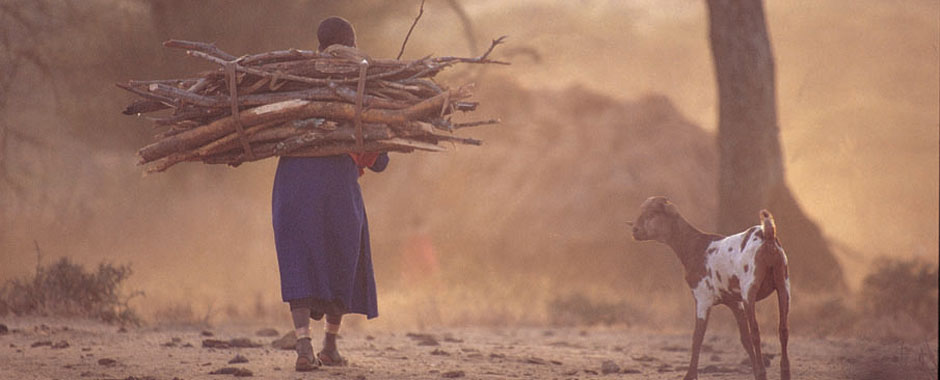Infectious diseases traceable to animals are driven by climate change, land-use change and the massive expansion of towns and cities, according to contributors to a paper in a major new output from the Dynamic Drivers of Disease in Africa Consortium, a STEPS Centre led project.
One Health for a Changing World: zoonoses, ecosystems and human well-being is a Special Issue of the Philosophical Transactions of the Royal Society B. It is co-edited by Professor Ian Scoones, Director of the STEPS Centre, Professor Andrew Cunningham of ZSL (Zoological Society of London) and Professor James Wood of the University of Cambridge.
The intersections of human, animal and ecosystem health lie at the heart of One Health for a Changing World, which explores the One Health approach to tackling animal-to-human (zoonotic) disease transmission. One Health rests on the principle that the health of humans, animals and ecosystems are interdependent.
One Health for a Changing World showcases the results of the four-year multidisciplinary Drivers of Disease project, which was funded under the Ecosystem Services for Poverty Alleviation programme.
STEPS Centre researchers are continuing their work exploring zoonoses with Livestock, Livelihoods and Health and the Myanmar Pig Partnership, both funded under the ZELS programme.
All One Health for a Changing World: zoonoses, ecosystems and human well-being articles are available, free, online at bit.ly/PTB1725. Or download individual articles:
- One Health for a changing world: new perspectives from Africa by Andrew Cunningham, Ian Scoones and James Wood.
- Local disease-ecosystem-livelihood dynamics: reflections from comparative case studies in Africa by Melissa Leach, Bernard Bett, M Said, Salome Bukachi, Rosemary Sang, Neil Anderson, Noreen Machila, Joanna Kuleszo, Kathryn Schaten, Vupenyu Dzingirai, Linidiwe Mangwanya, Yaa Ntiamoa-Baidu, Elaine Lawson, Kofi Amponsah-Mensah , Lina Moses, Annie Wilkinson, Donald Grant and James Koninga.
- One Health contributions towards more effective and equitable approaches to health in low- and middle-income countries by Sarah Cleaveland, Jo Sharp, Bernadette Abela-Ridder, Kathryn Allan, Joram Buza, John; Crump, Alicia Davis, Victor Del Rio Vilas, Will de Glanville, Rudovick Kazwala, Tito Kibona, Felix Lankester, Ahmed Lugelo, Blandina Mmbaga, Matthew Rubach, Emmanuel Swai, Linda Waldman, Daniel Haydon, Katie Hampson and Jo Halliday.
- Poor livestock keepers: ecosystem-poverty-health interactions by Delia Grace, Johanna Lindahl, Francis Wanyoike, Bernard Bett, Thomas Randolph and Karl Rich.
- One Health, emerging infectious diseases and wildlife: two decades of progress? by Andrew Cunningham, Peter Daszak, and James Wood.
- Views from many worlds: unsettling categories in interdisciplinary research on endemic zoonotic diseases by Hayley MacGregor and Linda Waldman.
- Facility-based surveillance for emerging infectious diseases; diagnostic practices in rural West African hospital settings: observations from Ghana by Freya Jephcott, James Wood and Andrew Cunningham.
- Structural drivers of vulnerability to zoonotic diseases in Africa by Vupenyu Dzingirai, Lindiwe Mangwanya, Melissa Leach, Salome Bukachi, Ian Scoones and Annie Wilkinson.
- Integrative modelling for One Health: pattern, process and participation by Ian Scoones, Kate Jones, Giovanni Lo Iacono, David Redding, Annie Wilkinson and James Wood.
- Spatial, seasonal and climatic predictive models of Rift Valley Fever disease across Africa by David Redding, David, Sonja Tiedt, Giovanni Lo Iacono, Bernard Bett and Kate Jones.
- Zoonoses, One Health, and complexity: wicked problems and constructive conflict by David Waltner-Toews.
- Engaging research with policy and action: what are the challenges of responding to zoonotic disease in Africa? by Kevin Bardosh, Jake Cornwall Scoones, Delia Grace, Gladys Kalema-Zikusoka, Kate Jones, Katinka de Balogh, David Waltner-Toews, Bernard Bett, Susan Welburn, Elizabeth Mumford and Vupenyu Dzingirai.
